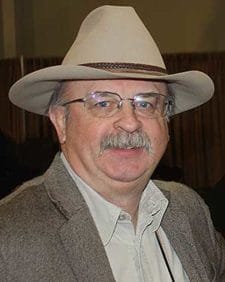
A newly-released Rasmussen survey reveals that far more likely U.S. voters believe mental health “is more to blame for mass shootings in America” than access to firearms, while a smaller portion believes social media is to blame.
The survey was conducted April 4-6 among 957 likely voters, before Monday’s deadly attack at a Louisville, Kentucky bank which left five people dead and several others, including a responding police officer, wounded. The shooter in that rampage has been identified as an employee of the bank who reportedly learned he was going to be fired. According to CNN, the Louisville gunman wrote a note to “loved ones” before leaving for the bank.
Perhaps not surprisingly, Louisville’s Democrat Mayor Craig Greenberg is now using the tragedy to push for an end to state preemption, allowing the city to have autonomy in making its own gun control decisions, according to Fox News. This is not unlike mayors of other large cities in states with preemption laws (approximately 40-42 states), which Democrats dislike. They want the power to regulate guns within their city limits, resulting in a patchwork of confusing and sometimes conflicting ordinances that leave gun owners vulnerable to arrest and prosecution for doing things that may be perfectly legal in a neighboring jurisdiction, or simply elsewhere around the state.
Preemption laws have prevented this from happening. Even lawmakers in blue-tilting Washington State this year allowed, for the umpteenth time it seems, a bill to repeal the state’s nearly-40-year-old preemption statute.
“If you support local decision-making to address local issues, if you want to help our state’s largest city thrive, please give Louisville the autonomy to deal with our unique gun violence epidemic,” Greenberg said.
As reported by Rasmussen, 42 percent of likely voters blame mental health for mass shootings, while 29 percent blame access to guns, which essentially translates to blaming the firearm rather than the perpetrator. Those pointing the finger at social media constitute 11 percent of the survey respondents.
Of particular interest to the Second Amendment community, Rasmussen notes 54 percent of Republicans, 33 percent of Democrats, and 41 percent of Independent voters believe mental health is more to blame for mass shootings in America. By contrast, 43 percent of Democrats, 10 percent of Republicans, and 31 percent of unaffiliated voters blame access to firearms more. Clearly, Democrats are more likely to blame guns than any other problem.
Meanwhile, the Nashville shooting aftermath is also part of the Rasmussen survey. According to poll results, “Solid majorities of every political category – 78% of Republicans, 66% of Democrats and 60% of unaffiliated voters – say the FBI should release the Nashville shooter’s manifesto.” So far, that document has not been released.
The killer in that incident was a transgender female who actually once attended the school. She was reportedly under a doctor’s care for treatment of an unidentified emotional problem, and her parents did not know she had purchased several firearms, including the three she carried into the Nashville Covenant school.
Sixty-seven percent of Rasmussen respondents are concerned the Nashville incident will inspire “copycat” shootings, leaving open the possibility of speculation that the Louisville bank attack may have somehow been such a case. Authorities in Louisville are still trying to determine the cause for Monday’s deadly incident.
In an earlier survey, Rasmussen revealed national support for more gun control rose in the aftermath of the Nashville school shooting. Rasmussen said 51 percent of likely voters think stricter gun laws would help prevent mass shootings, but 42 percent disagree.
Again, poll responses appear to be strongly determined by party affiliation. According to Rasmussen, 74 percent of Democrats think stricter gun control laws would help prevent shootings, while only 28 percent of Republicans agree. Forty-seven percent of Independents also think tougher gun laws are the answer.
On the other hand, 67 percent of Republicans and 43 percent of Independent voters don’t think stricter gun control will help, a position only 19 percent of Democrats took.
“Democrats (55%) are about twice as likely as Republicans (28%) or unaffiliated voters (27%) to believe it is possible to completely prevent mass shootings like the one in Nashville,” Rasmussen revealed. “Solid majorities of both Republicans (61%) and unaffiliated voters (58%) don’t think such shootings can be completely prevented, and 33% of Democrats agree.”
Overall, 50 percent of likely voters say it is impossible to completely prevent mass shootings, while only 38 percent believe it is possible.
About Dave Workman
Dave Workman is a senior editor at TheGunMag.com and Liberty Park Press, author of multiple books on the Right to Keep & Bear Arms, and formerly an NRA-certified firearms instructor.

from https://ift.tt/pvzj1ux
via IFTTT

No comments:
Post a Comment